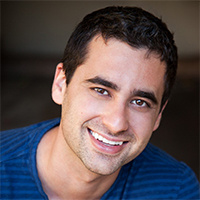Point Mugu Nawc Felony Lawyer, California
Sponsored Law Firm
-
 x
x

Click For More Info:
-
Gharibian Law, APC
101 North Brand Blvd. Suite 1970 Glendale, CA 91203» view mapMedical Malpractice Law Respect Your Elders
Our dedicated legal team can help your family reconcile with elder abuse, personal injury, and wrongful death.
877-875-1119
Adam L. Pearlman
✓ VERIFIEDAs a former Senior Deputy District Attorney in Ventura County, I, attorney Adam L. Pearlman, have garnered extensive experience in jury trials and can... (more)
Gil Lee Arbel
✓ VERIFIEDBorn and raised in Los Angeles, Gil Arbel is a dedicated and motivated young attorney. His specialty is in criminal defense, but he routinely handles... (more)
Stanley Burnett Granville
✓ VERIFIEDProudly taking criminal cases out of Beverly Hills California.
Charles Reinhardt Rondeau
✓ VERIFIEDCharles R. Rondeau has more than 25 years of experience successfully handling personal injury and employment-related cases throughout California. He h... (more)
William K. Ringgold
✓ VERIFIEDMeet William K. Ringgold, a highly skilled and experienced lawyer who specializes in handling DUI cases in California. With a deep understanding of Ca... (more)
FREE CONSULTATION
CONTACT Art Gharibian Glendale, CA
Art Gharibian Glendale, CA AboutGharibian Law, APC
AboutGharibian Law, APC





